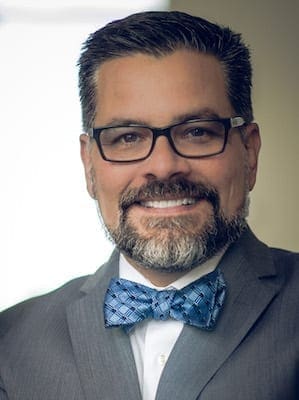Sex.
Now that I have your attention, let’s talk.
Spring is in the air, as life begins anew. Flowers are blooming, trees are budding, grass is greening, and the birds and bees are busy ensuring the continuation of their species (unless human-caused climate change wipes them out).
With another cycle of life, humanity has an obligation to think about a topic that often goes unspoken, or if spoken of at all, addressed in a very couched way or condemned to the point of making it evil. That topic, of course, is sex.
Christians need to face some unflattering realities: Sex has been used to control people, subjugate women, segregate races and divide socioeconomic classes over two millennia.
Because the church has not addressed sex in an honest and healthy way, sex has become the subject of condemnation or a tool to bring about division.
Recently, Lutheran minister and author Nadia Bolz-Weber published a book about sex. “Shameless: A Sexual Revolution” attempts to speak openly and honestly about the topic.
Bolz-Weber demonstrates how sex has been a taboo topic for the church, resulting in a narrow theological construct being created to define and influence its practice.
She points out that the traditional theological construct argues that “God’s will” is for a heterosexual person to deny natural sexual impulses until committing to a monogamous marital relationship between one man and one woman until death. If you fail at any point in this construct, you have fallen short of God’s desire.
In reality, and against God’s desire according to the traditional construct, people are having premarital sex, sex with multiple partners and homosexual relationships, as well as entering into divorce proceedings and dealing with issues that go beyond traditional comprehension.
Because of this reality, which is not new, Bolz-Weber offers, “If the teachings of the church are harming bodies and spirits of people, we should rethink those teachings.”
A vast majority of the world has not lived up to the traditional model, and this is unlikely to change.
In other words, while the church has promoted this narrow path for people, few – including committed Christians – have been walking down it.
Therefore, a question needs to be posed: Does the church need a different biblical construct focusing on a more holistic ethic?
Instead of a narrow ethic emphasizing restrictive sexual behavior, the church could include concepts that nurture a healthier sexual ethic.
These would include “imago dei,” natural desires, grace, relationship, connectedness, holiness, service, respect, spirituality and love.
Bolz-Weber contends that Christians need to stop defining and practicing sex through the concept of “purity,” which attempts to separate people “from” each other.
Instead, holiness should be our theological foundation when defining and practicing sex.
Holiness is about “union” with someone, whether that being is God or another human, and emphasizes the connection we have as created beings.
We have a holy connection with our Creator that, in turn, was instilled in humanity through the “imago dei” (Genesis 1:26).
Because of this divine connection, we have the ability to connect with other humans (Genesis 1:28 and 2:22-24). As relational beings, connection with the divine and human is at the center of our existence.
Jesus’ proclamation about the greatest commandments also fits within this construct: love God and love neighbor.
Granted, there is nothing particularly sexual about these commandments, but we must acknowledge that sex is multidimensional.
Sex is not exclusively about physically gratifying behavior. Sexual behavior possesses very deep emotional, psychological and spiritual connections that could be interpreted as holy.
What Bolz-Weber appears to be arguing for is not an everything-goes-approach to sexual behavior, but a resetting of how Christians think and behave when it comes to sex.
In “Shameless,” she speaks about how sex has been used by the church to shame those who have failed compared to the traditional model, to harm the LGBTQ community, to body shame women (and men), to perpetuate a patriarchal worldview and to preserve an ethic solely based on “thou shall not.”
Drawing on her Lutheran background, Bolz-Weber points out how Martin Luther promoted a more holistic ethic in his understanding of the Ten Commandments.
In Luther’s “Small Catechism,” he points out that it’s not enough to just not murder a person, but Christians are called to care for that person.
In other words, “do no harm and support others in their needs” is at the heart of his theological construct.
What if we took this same approach with sex?
What if we lessened our emphasis on “thou shall not” and started talking more about how sex is a beautiful and deep connection between two people?
Instead of setting the majority of people up for immediate failure because most of the world does not live up to the traditional construct, what if we promoted a healthy sexual ethic based upon relationship and connection?
As studies have revealed, abstinence-only programs do not work. The abstinence-only agenda is fueled by the traditional “thou shall not” theological construct.
Proponents of this traditional construct oversimplify a very complex and multifaceted issue. Abstinence-only denies these other facets of human sexuality by concentrating primarily on the act of intercourse.
To make such a complex issue so simplistic is irresponsible and denies a broader biblical view of sex. Christians need a reformation when it comes to thinking about and practicing sex.
Bolz-Weber is correct: A new sexual ethic is needed in order to “redefine the stale and oppressive sexual ethic that church has taught for so long.”
The new sexual reformation will “lead (the church) to become good stewards of our bodies and others’ bodies.”
Sex remains a holy gift from God that connects humans together: body, mind, heart and soul.
By developing and promoting a new sexual ethic, we can understand more fully and be obedient to the greatest commandments, “You shall love the Lord your God with all your heart, and with all your soul, and with all your mind. …You shall love your neighbor as yourself.”


